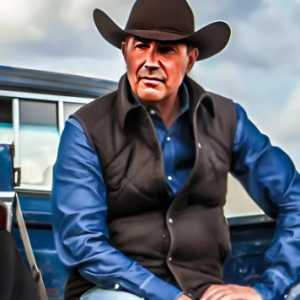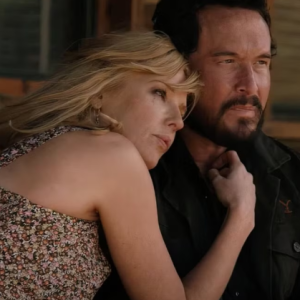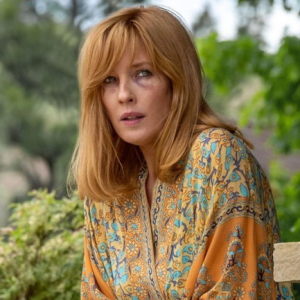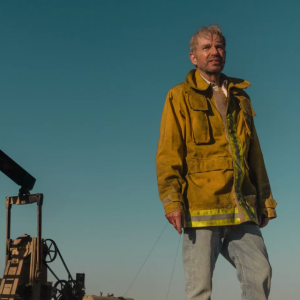The vast, unforgiving plains of Montana have always demanded an unyielding spirit. From the perilous journey west in 1883 to the relentless challenges of the Great Depression and Prohibition in 1923, the Yellowstone universe, crafted by visionary storyteller Taylor Sheridan, has meticulously chronicled the Dutton family’s enduring struggle to carve out and maintain their formidable ranch. As the dust settles on the dramatic conclusion of 1923, viewers are left grappling with profound heartbreak, immense loss, and the ever-pressing question of legacy. Now, the spotlight shifts to the next pivotal chapter in this epic saga: 1944. With its confirmation, fans are bracing themselves for what promises to be another intense exploration of the Dutton family’s tenacity and the harsh realities of their world. The central questions loom large: Who among the surviving Duttons will carry their legacy into a world forever reshaped by global conflict and societal change, and who will even live to see this new era unfold?
The finale of 1923 delivered a brutal blow to the Dutton family and its devoted fanbase with the shocking and tragic deaths of Jack and Alexandra Dutton. Jack, the promising young rancher and devoted husband, met a merciless end, leaving a void not just in the family but in the direct line of succession for the ranch. Alexandra, whose vibrant spirit and quiet resilience had endeared her to many, succumbed to complications from severe frostbite, a grim testament to the unforgiving nature of the land they sought to tame. Their love story, cut cruelly short, left behind more than just grief; it left profound questions about the future of the Yellowstone ranch. The loss of such vital, youthful figures amplifies the fragility of the Duttons’ hold on their sprawling empire, raising the stakes significantly for those who remain. Can the Dutton name, already weathered by generations of conflict and sacrifice, withstand yet another devastating storm and find new leaders to secure its future?
While Jacob and Cara Dutton miraculously survived the harrowing events of 1923, their continued presence in 1944 remains uncertain. Given their advanced age and the relentless hardships of life on the Montana frontier, the likelihood of seeing them as central figures in the new series appears slim. However, their leadership, unwavering grit, and immense sacrifices were instrumental in keeping the family intact during its darkest hour. Their wisdom and tenacity established the very foundation upon which the Yellowstone ranch stands, and their potential absence creates a symbolic void that Spencer, or a new generation, will be tasked with filling. Their legacy will undoubtedly loom large over the ranch’s future, as 1944 is poised to usher in a definitive generational shift, placing the burden of responsibility on younger shoulders.

Among the surviving characters, Spencer Dutton’s journey in 1923 was arguably the most profound, a harrowing odyssey marked by both intense trauma and eventual redemption. Having escaped the horrors of World War I only to find himself a hardened hunter in Africa, Spencer’s reluctant return home became the driving force of the season. According to Elsa’s prophetic voiceover, Spencer lives on for another 45 years after the events of the finale, firmly positioning him as a central figure in 1944. By this time, Spencer would be in his late 40s, fully immersed in the responsibilities of adulthood, fatherhood, and, most critically, the undeniable leadership of the Yellowstone ranch. With his uncle Jacob and aunt Cara likely stepping aside, Spencer is the most logical, albeit perhaps reluctant, heir to the Dutton legacy. The key question for 1944 will be whether he can truly rise to the occasion, or if the deep-seated trauma of his past will continue to haunt him as he endeavors to steer the family through an entirely new era of challenges. Brandon Sklenar, who portrays Spencer, has expressed enthusiasm for returning, stating, “I think someone’s gotta teach that kid”—referring to Spencer’s son, John—“how to ride a horse and shoot a gun and take better care of himself than Spencer did.” Fans eagerly anticipate witnessing this mentorship unfold and Spencer’s evolution into the hardened patriarch destined to secure the Dutton name.
Teonna Rainwater’s arc in 1923 was nothing short of transformative, becoming one of the show’s most powerful and poignant narratives. From enduring horrific abuse at the hands of the church to bravely escaping captivity and fiercely reclaiming her freedom, her journey captivated audiences. The finale saw Teonna finally walk free, no longer pursued by the law, with her entire life ahead of her. Given her last name, fans have long speculated, and the narrative strongly suggests, that she is an ancestor of Yellowstone’s contemporary Chief Thomas Rainwater. If this lineage holds true, 1944 could serve as a critical turning point in the Rainwater family history, illustrating the foundational struggles and resilience that shaped the modern Broken Rock Reservation. Actress Aminah Nieves has expressed her excitement about reprising the role, stating, “Age me up, do what you need to do. I’m here for it.” At just 27, Nieves is more than capable of portraying an older, wiser Teonna—perhaps even emerging as a significant leader within her community, navigating the complex landscape of post-war America as an Indigenous woman with unparalleled strength and unwavering resilience. Her story offers a crucial perspective on the intertwined histories of Native communities and the expansion of American power.
Elizabeth Dutton, who faced unimaginable loss in 1923, exits the series as a young, pregnant widow, her dreams of a happy life on the ranch brutally shattered. Her decision to return to Boston leaves her future, and that of her unborn child, open-ended. However, actress Michelle Randolph confirmed that Elizabeth is indeed still pregnant as she bids farewell to Cara, signifying that her unborn child could be a pivotal, direct link in the Dutton family tree. Elizabeth’s journey in 1944 could explore her life raising her child in a world vastly different from the rugged Yellowstone ranch—a world of urban comfort versus the demanding pull of her child’s Dutton heritage. This dynamic raises fascinating questions: Could this child eventually return to Montana, drawn by the undeniable legacy of their ancestors? Or could Elizabeth herself, years later, find her way back to the land that cost her so much, but also gave her an unbreakable connection to the Dutton name? The potential for her story is limitless, and Randolph’s clear enthusiasm—”I’m in. If it’s written, I’m in”—suggests a compelling return for this unexpected torchbearer of the Dutton bloodline.
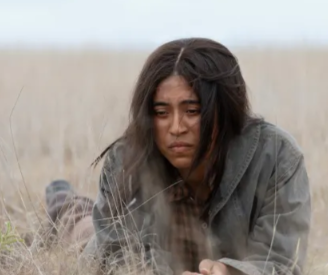
With so many core characters lost or aging out in 1923, 1944 promises to usher in a truly new generation of Duttons. Spencer and Elizabeth’s children are poised to become central figures, tasked with bridging the deeply ingrained values of the old frontier world with the rapidly evolving realities of mid-20th century America. This era will be defined by the profound trauma of World War II and its aftermath, significant economic upheaval, and the evolving roles of women and Native communities in society. These monumental shifts will undoubtedly form the dramatic backdrop for this new saga, presenting fresh challenges to the Duttons’ relentless fight for their land.
Taylor Sheridan’s storytelling consistently thrives on themes of generational conflict, moral ambiguity, and the sheer will to survive at all costs. With 1944, he has a unique opportunity to explore how the Duttons adapt—or defiantly resist—to an era defined by global conflict, technological advancements, and profound social change. Will the ranch be threatened by changing economic landscapes, new agricultural practices, or shifting federal policies? The series will likely delve into the complexities of safeguarding a massive landholding in a world that is becoming increasingly interconnected and industrialized.
1944 is far more than just another prequel; it is a critical, perhaps definitive, chapter in the continuing evolution of the Dutton dynasty. Who survives, who thrives, and who ultimately falls may surprise even the most die-hard Yellowstone fans. One truth remains constant: the choices made and the sacrifices endured in 1923 will reverberate profoundly into the future, shaping the destinies of generations to come. As Sheridan continues to build out this sweeping saga, viewers will undoubtedly scrutinize every casting announcement, every plot tease, and every historical detail for clues. Will 1944 deliver on its promise of continuing the Dutton legacy through new leaders, or will it introduce unforeseen forces set to challenge the very core of their existence? One thing is certain—on the plains of Montana, the fight for the Dutton land never stays quiet for long.

